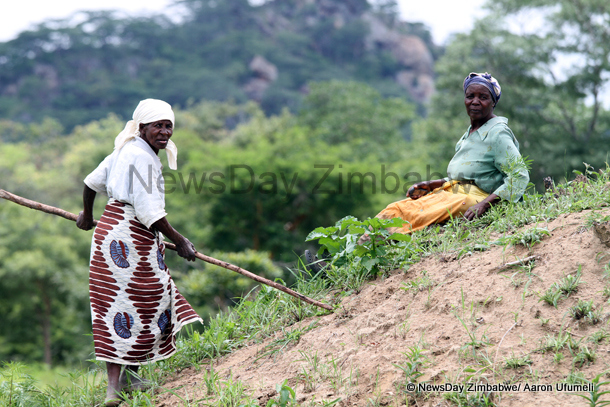
THE European Union (EU)’s decision to retain the travel embargo on President Robert Mugabe and First Lady Grace soon after extending a $270 million aid package to Zimbabwe for the first time since 2002 stemmed from Grace’s recent land grabs at Manzou Farm in Mazowe, NewsDay has established.
by moses matenga/phillip chidavaenzi
According to diplomatic sources in Harare, Western countries that have accused Mugabe’s government of human rights deficit have reportedly been perturbed by the First Lady’s ejection of villagers in Manzou to pave way for a wildlife sanctuary.
The restrictive measures — which include a travel ban and asset freeze on the First Family and the Zimbabwe Defence Industries — were last Friday extended to February 2016.
Speaking to NewsDay last Friday shortly after the EU retained its restrictive measures on the Mugabes, diplomatic sources said their governments were of the view that the Zanu PF administration had not shown much commitment towards addressing human rights issues as demonstrated by the First Family’s eviction of villagers at Manzou Farm to expand its business empire.
The diplomats, however, said the recent extension of aid worth $270 million to Zimbabwe demonstrated the West’s commitment to end the standoff with Harare.
“We do not live in the past. We are aware of what happened during the land reform and for the record, we have never been against the land reform, but the barbaric way it was undertaken,” an EU diplomat said.
“You can’t, however, say we are still fighting the land reform exercise that took place in 2000 or 2002. What is happening in Mazowe, for example, did happen in 2000 or 2002. They are issues that are happening now and affect our efforts to re-engage,” he added.
- Chamisa under fire over US$120K donation
- Mavhunga puts DeMbare into Chibuku quarterfinals
- Pension funds bet on Cabora Bassa oilfields
- Councils defy govt fire tender directive
Keep Reading
This was in apparent reference to the First Lady’s plans to take over Manzou Farm in Mashonaland Central, where she intends to set up a private wildlife sanctuary and gold-mining venture.
The families had their pole-and-dagga huts demolished by the police before they stopped the move through a second High Court order. The matter is yet to be finalised.
“Investors cannot come to invest where there is a record of contempt of court. They can’t come where the highest court in the land makes a ruling and it is not followed,” another diplomat said.
Zimbabwe Democracy Institute director Pedzisai Ruhanya, however, said extending the sanctions on the First Family was not the answer to the governance crisis in the country as there was need to look beyond Mugabe, whom he said was “only human”.
“What we need to appreciate given Mugabe’s age at 91 is that we are already in the post–Mugabe era. The future of this country is beyond Mugabe,” he said.
“The major problem is institutional. We need to relook our institutions of government and even civil society. If you remove Mugabe today and not deal with the broader governance issues and institutions that need to be reformed and democratised, you will remain with the same problems even without Mugabe.”
Ruhanya noted that removing the person without democratising the critical institutions of government would only pave way for the creation of another Mugabe.
Following his appointment to chair the African Union recently, Mugabe had the travel ban imposed on him as part of the sanctions lifted although his travels would be dealt with on a case-by-case basis, according to a senior official with the Delegation of the EU to Zimbabwe.











